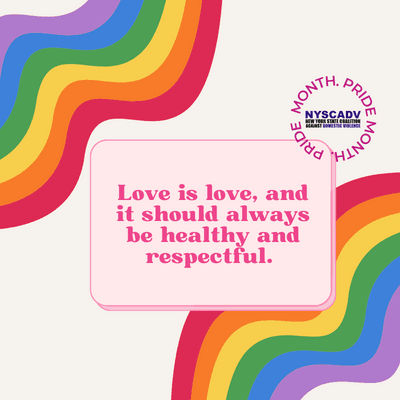
June is Pride Month, which began in remembrance of the 1969 Stonewall Riots in New York City. A turning point in the fight for LGBTQ+ rights, these protests helped spark a broader movement demanding justice and visibility for those whose identities had long been marginalized.
While much progress has been made, LGBTQ+ people continue to face discrimination and violence, including within intimate relationships. Research shows that domestic violence occurs in the LGBTQ+ community at rates similar to—or even higher than—those in non-LGBTQ+ relationships. Social stigma, limited protections, and lack of inclusive services often make it harder for survivors to get the help they need.
Abuse in LGBTQ+ relationships can look different and may involve threats related to identity or fear of being outed. Survivors may hesitate to reach out for support if they’ve had negative experiences with service providers or worry about not being believed.
Access to safe housing, legal assistance, and trauma-informed care can also be limited for LGBTQ+ survivors, particularly when policies and programs aren’t designed with these communities in mind.
This Pride Month, we recognize the needs of LGBTQ+ survivors and recommit to building inclusive support systems that are affirming and accessible. That means training providers, improving outreach, and pushing for policies that protect everyone, regardless of who they are or who they love.
Want to learn more or get involved? Start here:
- In Our Own Voices – A New York-based nonprofit serving LGBTQ+ people of color with advocacy, outreach, and support.
- NYC Anti-Violence Project – Offers counseling, legal support, and education to end violence against LGBTQ+ communities.
- Library of Congress LGBTQ+ Pride Month [GU1] – Explore the roots and evolution of Pride Month.
- National LGBTQ Institute on IPV – Works to improve services and policies for LGBQ+ survivors of partner abuse.
Everyone deserves to feel safe, respected, and seen—not just in June, but every day of the year.


